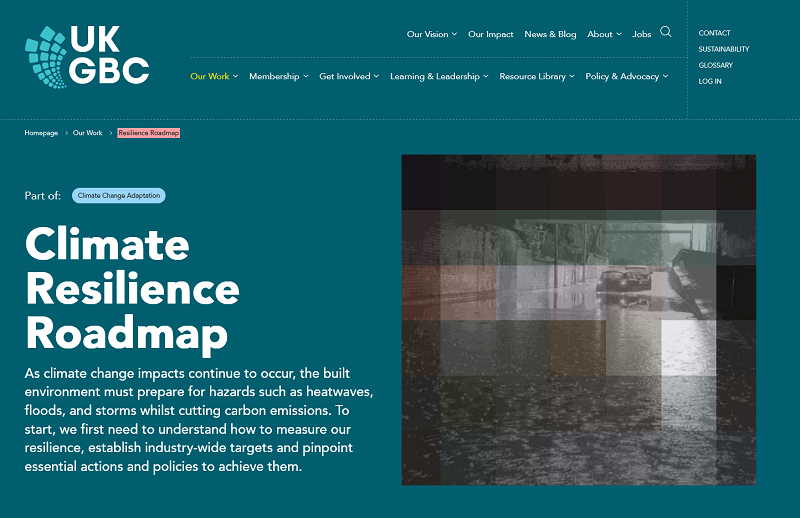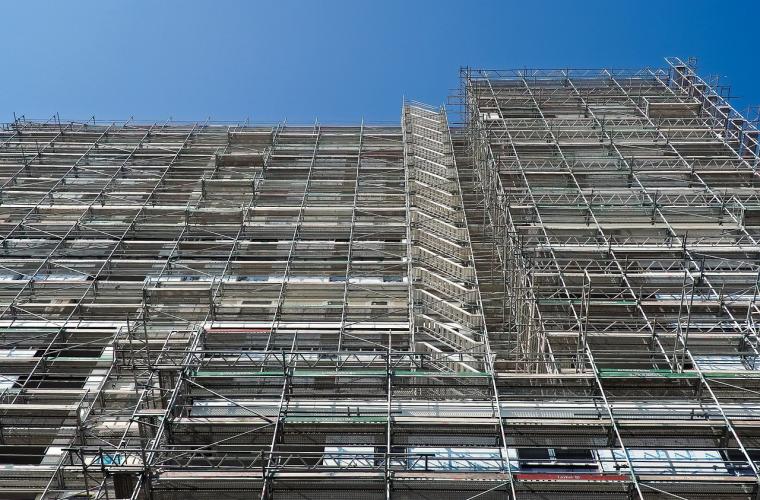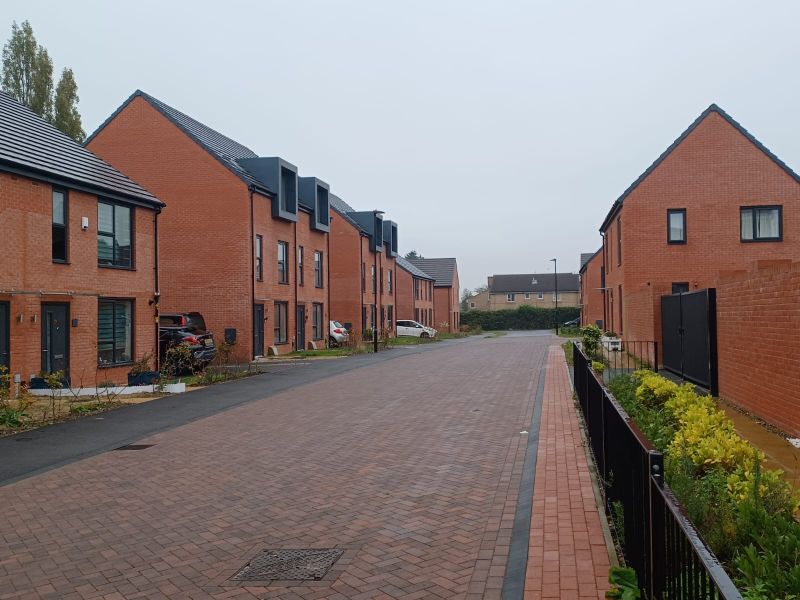The UK Green Building Council (UKGBC) is developing a roadmap to support achieving a climate resilient built environment by 2050.
For the first time, an evidence-based pathway will clearly map how the built environment should adapt to and be prepared for a changing climate – including protecting people, and the buildings, communities, towns and cities we inhabit, from the impacts.
The groundbreaking project addresses a current lack of climate resilience standards at a national, local or sectoral level.
UKGBC’s Climate Resilience Roadmap will use cutting-edge insights from industry to develop science-driven targets and catalyse urgent action across the built environment, and with Government and policymakers.

As the climate crisis intensifies and extreme weather events become more common, our buildings, cities and critical infrastructure – as well as the communities that use and occupy these – are in increasing danger. Hazards such as increasing temperatures, changing patterns of rainfall, periods of drought and increased flooding all pose major threats to businesses, the economy and people’s health and quality of life.
In the most recent assessment of risks the UK faces from climate-related hazards, over 60% were given the highest urgency score. Modelling has found that over 500,000 residential and commercial properties in the UK could be at high risk by 2050. For investors in the built environment, these risks pose challenges across the entire cycle, such as increases in insurance premiums, accelerated depreciation of assets, higher incidences of stranded assets, and considerably greater capital costs in the future. Intensifying climate hazards therefore pose physical risks to both tangible assets and supply chains, threatening the financial viability of all built environment businesses.
All built environment professionals have a key role to play in adapting to the climate, from designing buildings that can handle the impacts of extreme weather, to assessing risks to existing assets and funding extra resilience measures for our cities. To drive systemic change, a significant gear shift is required, with a focus on delivering scalable and widespread actions. Being developed as part of UKGBC’s Resilience and Nature Programme, the Roadmap will set metrics to help measure climate resilience, establish urgent priorities and industry-wide targets, as well as pinpoint essential actions and policies to achieve them.
The Climate Resilience Roadmap builds on UKGBC’s Whole Life Carbon Roadmap, which launched at COP26 in Glasgow and provided both the industry and government a common vision and agreed actions for achieving net zero carbon in the built environment. This new roadmap will be a key resource to enable stakeholders to develop their climate-related risk strategies, targets and actionable plans, aligned with current and future UK reporting requirements such as the TCFD and IFRS standards.
UKGBC is currently recruiting for Project Partners and Task Group members, who will contribute to this industry-leading project to shape the future of the UK’s built environment by enhancing its climate resilience.
Smith Mordak, Chief Executive at UKGBC, said: “While we absolutely need to reduce our emissions to net zero as quickly as possible, even if we stopped releasing greenhouse gases into the atmosphere tomorrow, the climate will continue to change. We need to adapt not only to a zero carbon world, but to a less predictable climate. This means ensuring our buildings and infrastructure are ready to withstand increasingly extreme weather, but also ensuring that we have the social infrastructure in place so that climate breakdown stresses aren’t distributed unfairly. The technical, logistical, and social challenges are huge so please join us in working together to create a Resilience Roadmap for the UK built environment!”
Amanda Skeldon, Director of Climate & Nature, JLL, added: “Having a clear understanding of the risks posed to buildings, and what that means for their resilience in the face of a changing climate is vital for the long-term sustainability of the built environment as a whole. JLL is pleased to be able to contribute to increasing understanding of how to measure, set targets and deliver resilience for the real estate industry, by working in partnership with UKGBC to develop the Climate Resilience Roadmap.”
Ashley Bateson, Director, Hoare Lea said: “The UK built environment faces extreme challenges from climate change. The impacts will potentially be felt by millions of people occupying and working in buildings that are not currently adapted to the projected warming and extended heat waves. Hoare Lea is therefore pleased to support the UKGBC Resilience Roadmap project. By leading the assessment of overheating analysis and reviewing the mitigation opportunities we aim to contribute to an important aspect of the UK’s Resilience Roadmap. This is an important collaborative project, and we are proud to contribute.”




















